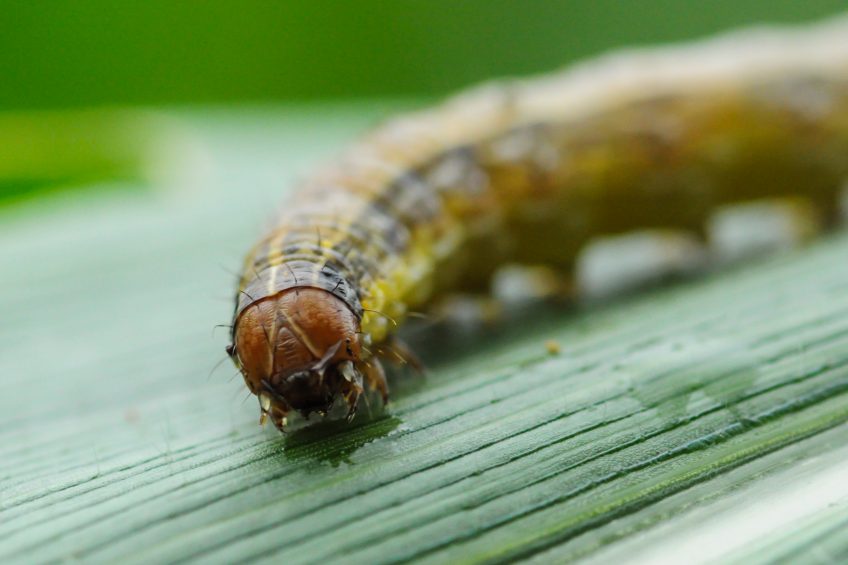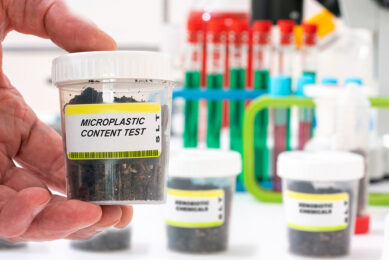Progress made on controlling fall armyworm

Losses due to fall armyworm are lower than projected in 2017 and the pest is still primarily focussed on maize rather than any other potential host crops.
This is according to data, published in a new report from CABI. CABI is a not-for-profit scientific research, publishing and international development organisation. The average maize loss reported by farmers in Ghana was 26.6% and in Zambia 35%. This is much lower than reported in 2017. Yield loss could be lower due to climatic factors, build-up of natural enemies or improved management. Farmers may be getting better at estimating FAW damage.
Present in Africa and Asian countries
The report states that better monitoring, swift responses by governments and farmers and an increase of natural enemies attacking the pest all help in mitigating the devastating crop losses it can cause. In the report, funded by the UK Department for International Development (DFID) and the Netherlands Directorate-General for International Cooperation (DGIS), CABI scientists confirm that the fall armyworm is now present and causing damage to crops in 44 countries in Sub-Saharan Africa. It has also recently been reported in India and poses a threat to other suitable areas in Asia.
Losses are still significant
The revised estimates indicate that the potential impact of fall armyworm on maize production across 12 major African countries is lower than previously estimated at 4 to 18 million tonnes annually, with an economic value of between US$ 1 to 4.6 billion per annum.
Despite the reduction in the 2018 continent-wide maize loss estimates compared to 2017, the perceived losses are still very significant, particularly for a sector made up predominantly of low-income smallholders growing maize and other crops for subsistence and sale.
Integrated Pest Management tools
The report makes a number of recommendations aimed at advisory services, regulators, researchers and those responsible for the national coordination of ongoing management of the fall armyworm. It also highlights advancements in the monitoring and control of the pest, as part of an expanding set of available Integrated Pest Management (IPM) tools, including:
- Biopesticides
- Biological control
- Better monitoring
- Agronomic and cultural practices
- Effective use of pesticides
- Insect-resistance maize
- Traditional pest control methods
Look at the past: Armyworm in maize is spreading rapidly in Africa
Coordination and collaboration is needed
CABI addresses that coordination and collaboration on research as well as implementation
is essential. Currently only a few national organisations in Africa are involved in either, yet they play a critical role in what happens in practice. Thus while international players have a major role to play in addressing a problem of this magnitude, most of the recommendations in the report are directed at national or subnational organisations.
Source: CABI












